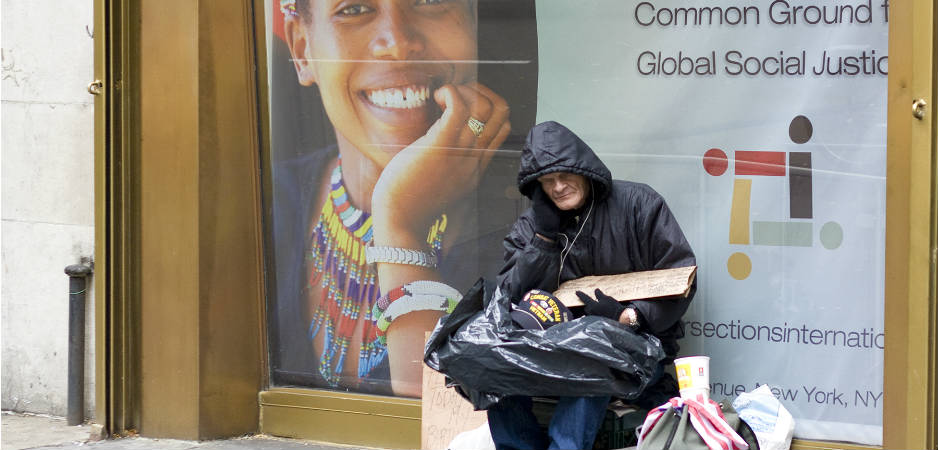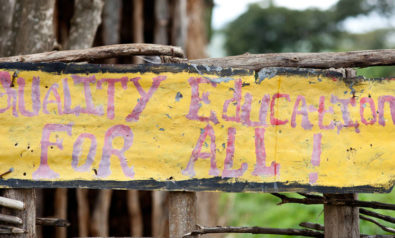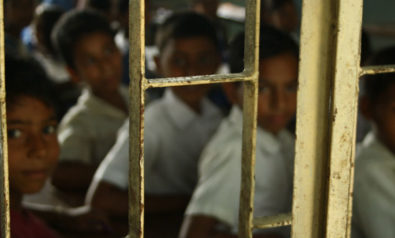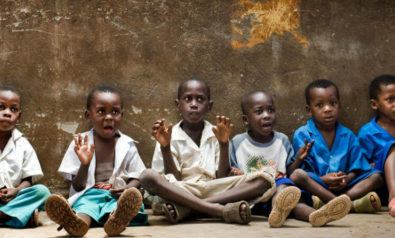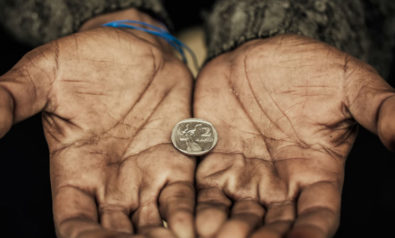The US is falling short of the UN Sustainable Development Goals.
In September 2015, the United States and 192 other nations adopted the United Nations’ Sustainable Development Goals (SDG). These 17 goals and 169 targets set a development agenda for all countries, including the US, regardless of income or wealth.
While there are some targets that focus specifically on developing countries, each goal includes at least one target of which the US falls short. In examining just the first five goals, it is apparent that while the US is working toward achieving these goals abroad, similar domestic efforts are needed in order to achieve the SDGs by 2030.
Alleviating Poverty
The first SDG is “to end poverty in all its forms everywhere.” One key target for this goal is reducing the proportion of people living in poverty by at least half. In 2014, the US had a poverty rate of 14.8%. Approximately 35 countries have lower poverty rates than America, including Thailand, Azerbaijan, Tunisia and many other countries traditionally considered much poorer than the US.
America works to alleviate poverty around the world through targeted development programs. In the 2017 fiscal year, the US plans to spend $34 billion in foreign assistance, $3.6 billion of which will be used specifically for economic development initiatives. These development programs include requirements for monitoring, evaluation and reporting to ensure their effectiveness.
Yet the same cannot be said for anti-poverty measures in the US itself. In 2012, the US spent $799 billion on domestic anti-poverty programs—some of which worked, some of which did not—and others for which the impact was not measured. Since the adoption of the SDGs, there have been no major domestic policy reforms to address US poverty. America should implement targeted domestic initiatives that employ the same evidence-based approach used abroad if it is to decrease the poverty rate to less than 7.4% by 2030.
Food Insecurity
Just as poverty is still a major problem in the US, so too is hunger. The second SDG—to end hunger—includes ensuring everyone has access to safe, nutritious food year-round. In 2014, an estimated 17.4 million US households (14%) were food insecure and 6.9 million households (6%) experienced very low food security. Only 61% of these households participate in federal food assistance programs.
Food insecurity is certainly more severe and fatal in developing countries, especially those experiencing civil war or other humanitarian crises. The US is rightfully expanding and reforming food assistance programs abroad to meet these needs and reach an additional 2 million people each year. At the same time, it must expand access to domestic food assistance programs and raise the income of vulnerable families such as by raising the minimum wage, so that US households can meet their own nutritional needs without government assistance.
War on Drugs
One of the targets of the third SDG—ensuring healthy lives and well-being—is to strengthen the prevention and treatment of substance abuse. In 2013, an estimated 22.7 million Americans needed treatment for drug or alcohol abuse, but only about 2.5 million (11%) received treatment.
Historically, the War on Drugs in the United States has focused more on controlling the supply of drugs by incarcerating drug offenders than on treating substance abuse. President Barack Obama’s 2017 budget request includes increased funding to expand treatment for opioid use disorders and proposes increasing access to substance-abuse treatment providers.
These are steps in the right direction, but the US needs to continue to expand access to affordable treatment and prioritize treatment over jail time for drug and alcohol abusers.
Education
Providing inclusive and equitable quality education for all is the fourth SDG. This includes ensuring that all boys and girls have access to pre-primary education. The US is working to increase access to education around the world, especially for girls and young children. Since 2011, US-funded early-grade reading programs have reached over 300 million students in 42 countries. Some countries have already nationalized these programs.
Yet in 2014, only 43% of three-year-olds and 66% of four-year-olds in America were enrolled in pre-primary programs. Eleven states do not offer state-financed preschools. With more and more evidence illustrating the importance of early childhood education in determining lifelong achievement and outcomes, the US needs to expand access to pre-primary education.
Violence Against Women
The fifth SDG—gender equality—encompasses the elimination of violence against women and girls, which remain endemic in America. An extensive survey completed in 2011 found that in the US, one in five women is raped in their lifetime, and almost 2 million women are raped every year. These staggering numbers place the US 14 out of 119 countries for the highest incidence of reported rape.
 Fair Observer provides you deep and diverse insights for free. Remember that we still have to pay for servers, website maintenance and much more. So, donate now to keep us free, fair and independent.
Fair Observer provides you deep and diverse insights for free. Remember that we still have to pay for servers, website maintenance and much more. So, donate now to keep us free, fair and independent.
In 2015, the US Agency for International Development (USAID) released a report detailing its efforts working with men and boys to end violence against women in developing countries. While the Obama administration’s “It’s On Us” campaign to end sexual assault took important first steps in addressing this problem, there are no domestic programs comparable to USAID’s initiatives abroad.
The US should replicate successful international efforts to end rape and violence against women domestically. Only by actively discouraging a culture that tacitly condones violence—especially sexual violence—against women, and holding perpetrators of these crimes accountable for their actions, will America hope to end violence against women by 2030.
The US is falling short of many of the Sustainable Development Goals. These goals and targets are all worthwhile aims that America should support in pursuit of a more prosperous, safe, equitable and just nation. To do so, the US needs to lead by example as it encourages and assists other countries to adopt policy reforms by simultaneously implementing crucial reforms at home to achieve the SDGs internationally and domestically by 2030.
The views expressed in this article are the author’s own and do not necessarily reflect Fair Observer’s editorial policy.
Photo Credit: Marcio Silva
Support Fair Observer
We rely on your support for our independence, diversity and quality.
For more than 10 years, Fair Observer has been free, fair and independent. No billionaire owns us, no advertisers control us. We are a reader-supported nonprofit. Unlike many other publications, we keep our content free for readers regardless of where they live or whether they can afford to pay. We have no paywalls and no ads.
In the post-truth era of fake news, echo chambers and filter bubbles, we publish a plurality of perspectives from around the world. Anyone can publish with us, but everyone goes through a rigorous editorial process. So, you get fact-checked, well-reasoned content instead of noise.
We publish 2,500+ voices from 90+ countries. We also conduct education and training programs
on subjects ranging from digital media and journalism to writing and critical thinking. This
doesn’t come cheap. Servers, editors, trainers and web developers cost
money.
Please consider supporting us on a regular basis as a recurring donor or a
sustaining member.
Will you support FO’s journalism?
We rely on your support for our independence, diversity and quality.


